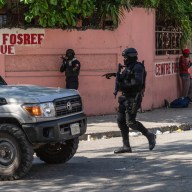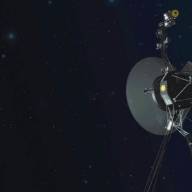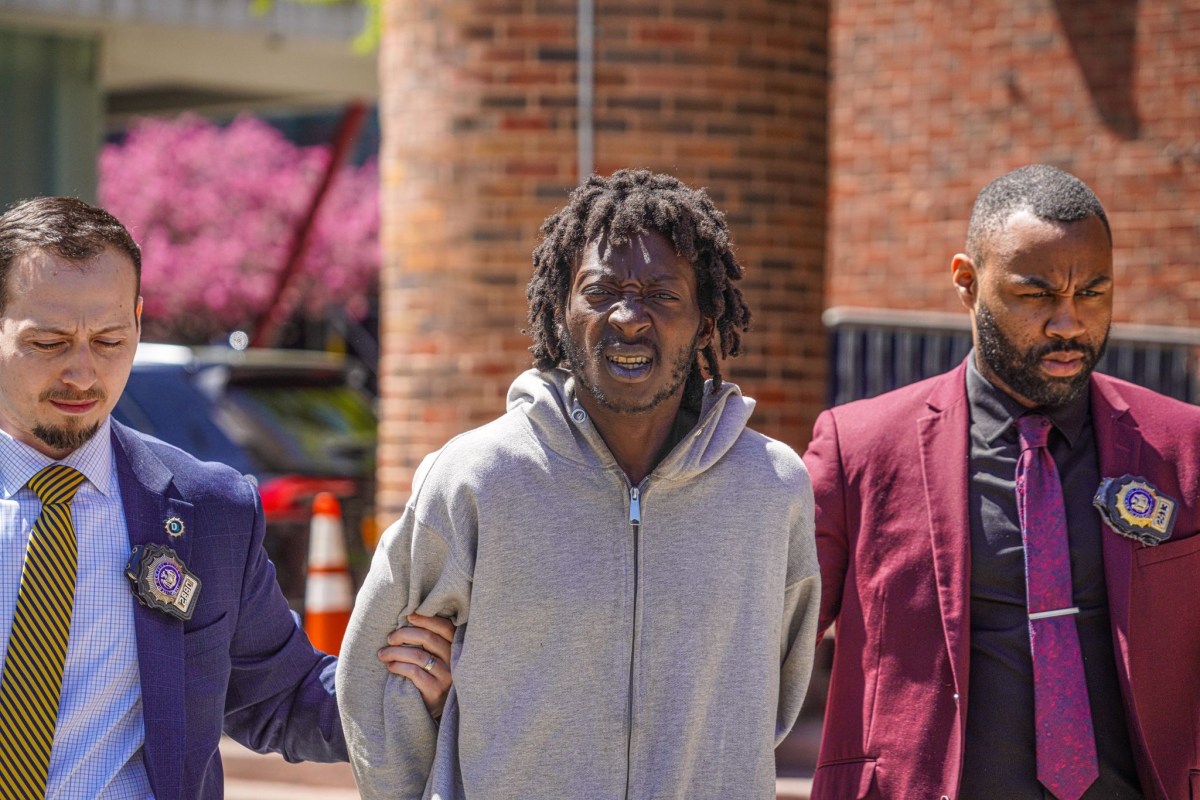HAVANA – Fidel Castro said Tuesday that the U.S. administration’s softening of sanctions is “positive although minimal,” and criticized it for leaving in place the embargo that bars most trade and travel between the two countries.
The White House announced Monday that Americans will now be able to make unlimited transfers of money and visits to relatives in Cuba. Under Bush administration rules, Cuban-Americans were eligible to travel here only every three years and send up to $300 to relatives every three months.
Monday’s action eliminated those limits in the hope that less dependence on their government will lead Cubans to demand progress on political freedoms.
Many in Cuba saw the changes as a humanitarian gesture.
“You can imagine what it is like to have a marriage by telephone,” Berta Maria Mayor said Tuesday as she awaited the charter plane carrying her husband back to Cuba for the first time in three years. “I’m in love with someone I barely get to see,” the 45-year-old added.
Mayor said she hoped her husband could visit several times a year, although family finances are tight after his layoff from a Florida shirt factory job three months ago.
Castro responded to the measures in an online column Monday night, writing that the United States had announced the repeal of “several hateful restrictions,” but had stopped short of real change.
“Of the blockade, which is the cruelest of measures, not a word was uttered,” the 82-year-old former president wrote.
Castro noted that several U.S. senators favour lifting the trade embargo and urged President Barack Obama to seize the opportunity.
“The conditions are in place for Obama to use his talent in a constructive policy that ends something that has failed for nearly half a century,” he wrote.
He released a second column Tuesday, saying the changes were “positive, although minimal.”
“We need a lot more,” he wrote, singling out the elimination of the so-called “wet-foot, dry foot” policy whereby Cuban immigrants fleeing the island who are apprehended on the high seas are sent home, but those who make it to U.S. territory are allowed to stay.
Castro also said Cuba would like to hear “some self-criticism” by the U.S. for the failed Bay of Pigs invasion 48 years ago and a guarantee that it won’t happen again in the hemisphere.
He suggested Obama won’t be in the White House long enough to undo the damage of his predecessor, George W. Bush.
“We do not want to hurt Obama even in the slightest, but he will only be president for one or two terms,” Castro wrote. “He is not responsible for what occurred and I am sure that he will not commit the atrocities of Bush. After him, however, there could come another who is equal to or worse than his predecessor.”
While analysts say the U.S. policy change could usher in a new era of openness between the two countries, few Cubans think it will mean the end of the embargo, which has choked off nearly all U.S. trade with the island for 47 years and counting.
“I’m not hoping for much more from Obama,” said 43-year-old office worker Layna Rodriguez. “I don’t know that he can do much more since to him, the important thing is what the Americans in his country do.”
But many are happy that American relatives will now be able to come whenever they want, stay as long as they want and send as much cash home as they can. About 1.5 million Americans have relatives in Cuba, which turned to communist rule after Fidel Castro seized control in 1959.
Allowing unlimited travel by family members, “is a humanitarian question, above all a thing of the heart,” said Yulesvi Ramirez as she arrived Tuesday in Cuba for the first time since leaving to live in the United States 1 1/2 years ago.
Other steps taken by the White House include expanding items allowed in gift parcels sent to Cuba. The administration also will begin issuing licences for companies to provide cellular and television services to Cubans, and letting family members pay for relatives on the island to get those services.
But some said the moves are only a beginning. Alberto Sal, a 68-year-old retiree, said he had high hopes when Obama was elected but is still waiting for significant action.
For instance, the president said nothing Monday about bipartisan measures in both houses of Congress that would effectively allow all Americans to travel to Cuba.
“He should do more and lift travel restrictions for all Americans,” Sal said. “Until he does that, I don’t think he’s doing much.”
















